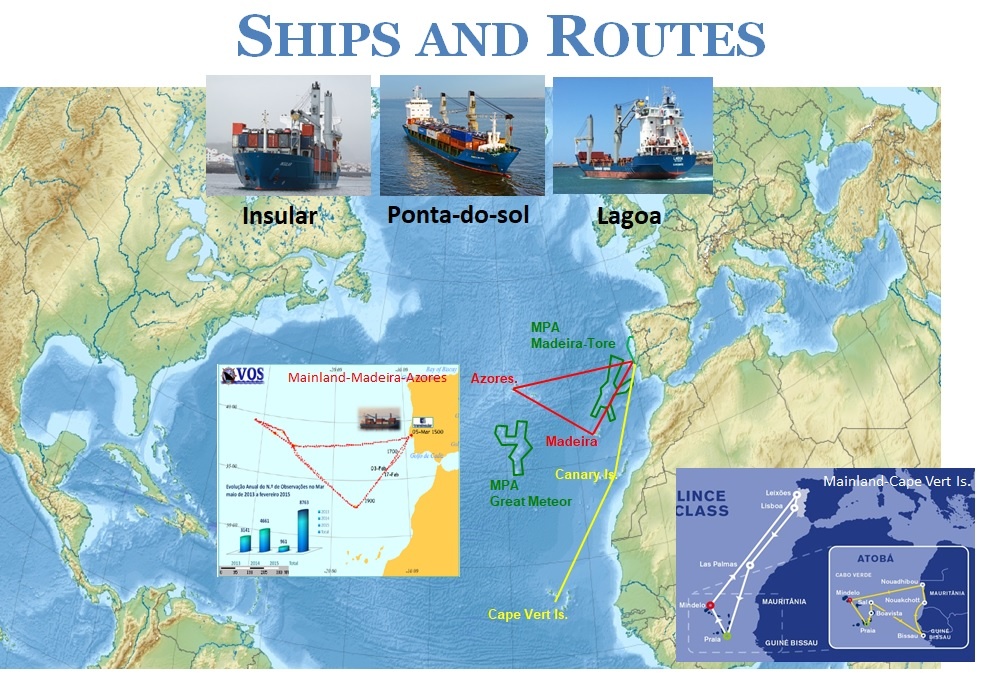Several ocean observing systems are under development in a collaboration between the Portuguese Institute for the Ocean and Atmosphere (IPMA), the Centre of Marine Sciences of the University of Algarve, and other Portuguese organisations.
These include the following projects:
OBSERVA.PT
“Observations on board national commercial ships to support the conservation of marine biodiversity in the Portuguese Seas (16-01-04-FMP-002)”, is funded by the EU and the Portuguese Government under the Mar2020 Programme. OBSERVA.PT aims to implement appropriate marine environment monitoring technologies (satellites and continuous automatic recording equipment) for the production of operational oceanographic and meteorological information. Meteorological stations and oceanographic equipment were installed on board cargo ships en route from Portugal Mainland to Madeira, Azores and Cape Verde Islands (Northeast Atlantic Ocean).
OBSERVA.FISH
“Autonomous Observing Systems in Fishing Vessels for the Support of Marine Ecosystem Management (PTDC/CTA-AMB/31141/2017)”, is funded by the EU and FCT under the Portugal2020 Programme, and aims to develop a totally autonomous system (no human action), integrating several new parameters (meteorological and oceanographic), which can be installed onboard all types of fishing vessels (trawlers, purse-seiners, longliners). This observation system should allow high-resolution in situ monitoring and spatial coverage of the ocean and coastal areas. The use of fishing vessels is one way to make long-term scientific measurements sustainable since fishing vessels ply coastal seas at all times of the year and in almost all weather conditions. The operational environment tests will be carried out on several IPMA’s RV and it is proposed that the system achieve a TRL7 to install on the fishing fleet for collecting data with large space coverage and high time resolution, difficult to obtain with other observing platforms. The analysis will support the development of new products for more safe and efficient maritime operations, to support fishing activities and an integrated management of the marine ecosystems.
EA-RISE
The “Euro-Argo Research Infrastructure Sustainability and Enhancement (H2020-INFRADEV-2018-2020 No 824131)” aims to support a new phase of Argo by improving and expanding the network’s capabilities (greater depths and biogeochemical measurements), providing essential ocean observations to respond to new societal and scientific challenges. The project is necessary for Europe to develop its contribution to this new phase in time and with new teams (e.g., Portugal). One of the tasks is to develop methodologies for efficient Argo observations in very dynamic ocean systems, such as the Gulf of Cadiz (our study case) and the Gulf Stream.

Authorship of the article: A. Miguel Piecho-Santos, IPMA and CCMAR
[Appeared in POGO Quarterly Newsletter Issue 41: August 2020]
